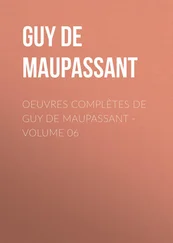The feeling took root in the ordinary citizen that whatever benefits this hullabaloo brought weren’t worth it. Vera did not share this opinion. To her, life seemed to have made an unexpected detour through Connaught, stirring it up, waking it up. The sudden flush of raw, uncouth energy, the jump and bustle, the easy come and easy go of it, reminded Vera of what it had been like during the war.
It didn’t hurt either that her business had taken another upswing, nearly doubling, with the start of mine operations. A sudden flood of men, many of them single, meant she could barely meet the demand for meals. There might be cook shacks out on the mine site but when the day shift ended the first thing on every man’s mind was to drive into town for a couple of cool ones. Usually they didn’t bother to return to camp for supper. “Let’s eat at Vera’s,” someone would suggest, and it was decided. Besides, if they remained in town for their meal they could get back to the beer parlour with scarcely an interruption.
Circumstances had reversed themselves. Now it was her father’s restaurant which was the second choice and received the overflow, not The Bluebird. Men were willing to wait for a place at Vera’s. Vera had Mr. Stutz hammer together a long sturdy bench which she set outside, against the front wall of her cafe. There her customers could wait in comparative comfort when the weather was fine. Townspeople strolling by during the supper hour never counted fewer than ten men sitting there side by side, waiting their turn and considering what it would be tonight – a half-chicken crisp and golden and savoury, a T-bone smothered in buttered mushrooms, a thick slab of pink roast beef, or maybe Vera’s pork chops and sauerkraut. Then dessert. Deep-dish apple pie, hot, with two scoops of ice cream melting into the pastry. Or a maple walnut sundae. They would sit, dog-tired, smoking cigarettes and drinking the complimentary coffee which Daniel brought out to them, the evening sun spreading its still bronze light over them so that it would have been easy to mistake them for statues representing some quiet virtue such as patience or fortitude.
Inside, however, it was bedlam itself. Vera had installed a juke box, and if the men weren’t feeding it quarters she’d toss in a few herself, just to keep the mood cheerful. She’d also taken on another cook so that no matter how busy it got she could always take a few minutes to have a word with her patrons. Floury-armed and red-faced, the Queen of the Portuguese went on her walkabouts, distributing the regal smile and nod, chaffing this one, dropping a joke here, exhibiting the common touch. The men loved it.
“Hi, good-looking. What’s cooking?”
“Not your supper, John. You talk to me that way yours goes on the back burner.”
“Hey, Vera, Tony wants a date!”
“So does his wife. They ought to get together.”
Roars of laughter, forks ringing on water-glasses in applause, and Vera would glide through the swinging doors of the kitchen, buoyant on a wave of popularity.
“That Vera, isn’t she something?” they’d declare, shaking their heads.
For the first time in a good many years Vera was inclined to agree with them. Yes, she was something. Damn right she was. People were beginning to sit up and take notice. “That one is a goer,” Connaught’s old-timers would say. Even her father couldn’t overlook her now. She couldn’t suppress a small smile of triumph when Mr. Stutz reported that Alec had crossed out the prices of all the meals on the hotel menu and reduced them all by twenty-five cents. When she learned that, Vera also crossed out her prices, but instead of cutting them, she increased them all by a dime. It wasn’t greed which prompted this; she merely wanted to demonstrate that the success of The Bluebird had nothing to do with cheapness, nothing to do with money was at the heart of it.
The daily take continued to grow. Working seven days a week, fifteen hours a day, there was little opportunity to spend her money. The best she could manage were daydreams while rolling piecrust or scraping carrots, daydreams of the things she could afford to buy herself now: tailored suits, a good cloth coat, smart wool skirts. Clothes that didn’t go in and out of fashion on a whim, clothes that bespoke quality. Katharine Hepburn clothes. It was good enough to know that she could have them if she wanted them; the money would stay in the bank, earning interest for the day Daniel would need it.
Vera had made a strange discovery. Money was like a telescope, extending the range of vision. In the bad old days, when she had been a checkout girl in the supermarket, Vera had seldom allowed herself to look beyond payday, the end of the month, further than thirty-one days. There seemed no point to it. Now things were different. Letting her imagination run free she could see him through six or seven years of university, or however long was required to make him something really fine, a doctor or a lawyer perhaps. Contemplating that made clothes unnecessary. Anticipation was sweeter than any showy glad rags, so were feelings of sacrifice. She thought of how proud Stanley would be – of her, of their son.
Each night, regular as clockwork, Mr. Stutz slipped into The Bluebird minutes before it closed. While Vera counted the day’s receipts and transferred them to a heavy canvas deposit bag, Stutz stood in the window, scanning the street. When the money was safely stowed in the bag, the two of them went out together. For weeks Mr. Stutz had insisted on walking Vera to the bank’s night deposit chute to protect her from attack and robbery. “Connaught’s changed,” he would say, “there’s bad characters around who wouldn’t give it a second thought.”
Mr. Stutz was a sternly chivalrous man and he could not be persuaded that she was in no danger on her short walk to the bank. Only when the cash was safely deposited could he be made to say goodbye in his reluctant, formal manner. There had been arguments when he first began to escort her because he had wanted to see Vera all the way home, to her doorstep, but after strong protests he had relented. Mr. Stutz suspected what made her so uneasy. A single woman seen home each and every night of the week by a man might be running risks with her reputation. He could see her point, he supposed.
Of course, it had never entered Vera’s head that her good name was in any sort of peril. She simply wanted to avoid stimulating his hopes, if he had any. She didn’t know whether to believe her father or not. Besides, the walk home was the only time she had to herself, completely alone. It was pleasant to feel the summer night like a shawl, warm and soft about her shoulders. The streets occupied by natives of Connaught, unlike those of recent immigrants, were silent and dark, except for the occasional glow of a porch light haloed in a swarm of moths. Vera liked to remove the shoes from her aching feet and pad along the sidewalks the Portuguese had laid, the coarse texture of the concrete prickling the soles of her naked feet.
Going barefoot she remembered how it used to be, headed for home in the dark as a girl of ten, every nerve alive and quivering, a stealthy, wary animal. Vera, “the big show-off,” always made a point of walking home from the movies alone. It was a way of attracting attention; everybody else travelled in a giggling pack, or at least in pairs, because they were scared of the dark and their own shadows.
“How can you!” Phyllis and Mabel used to exclaim, causing a half-smile to briefly flit across their friend’s lips. Phyllis and Mabel walked hand in hand, took turns delivering each other home first, the lucky one standing on her doorstep to watch her friend sprint the yawning black distance of two doors down, the yawning black distance which separated the Knouch and Tierney verandas, populated with God knew what – the Lindbergh baby kidnappers, mad dogs, crazy tramps.
Читать дальше












